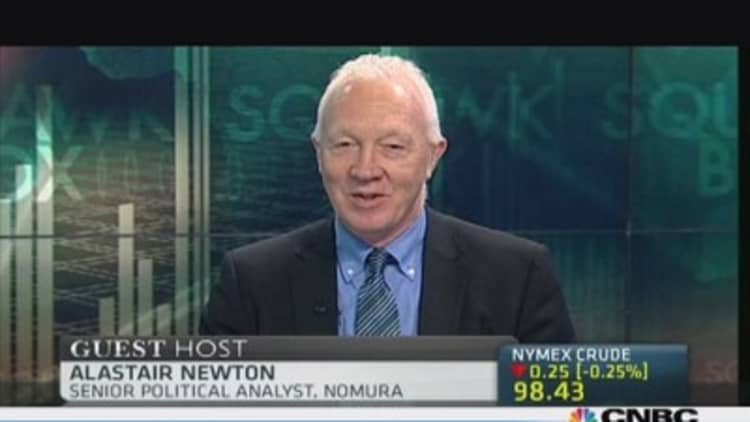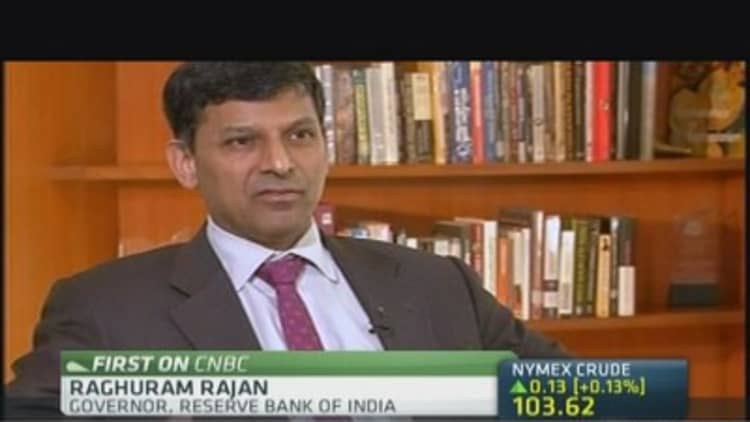India's central bank is tipped to hike interest rates for a second straight month on Tuesday, sending a message that fighting inflation remains the priority for now.
Many analysts expect the Reserve Bank of India (RBI) to raise its benchmark interest rate by 25 basis points to 7.75 percent – a move that would follow a surprise quarter-point rate rise last month.
Since last month's decision, inflation data from Asia's third-biggest economy have provided grim reading for Raghuram Rajan, who took the helm as Reserve Bank of India (RBI) Governor in early September.
(Read more: What's important in Asia this week)
The wholesale price index, a closely-watched gauge of inflation, rose 6.46 percent in September from a year earlier on higher food prices. That's well above the 5 percent level that many analysts say is the RBI's comfort zone.

"We think the RBI will hike the repo rate by 25 basis points," said Robert Prior-Wandesforde, director for non-Japan Asia economics at Credit Suisse. "Rajan is a new central bank governor so he needs to establish his inflation-fighting credentials with the market."
A Reuters poll last week showed that 29 out of 41 economists surveyed forecast a 25 basis point rise in rates at this week's RBI meeting. Twelve analysts forecast no change in rates.
Balancing act
Analysts say Rajan has a tough task on his hands. On the one hand the central bank wants to reassure markets that it will do all it can to keep inflation under control, but there is also some concern that raising rates too high could put further pressure on a slowing economy.
(Read more: The 'sexy' central banker who's causing a stir)
India's economy has slowed sharply from annual growth of around 8 percent between 2002 and 2012 to about 5 percent for 2012/2013.
Indeed, to help support the economy the RBI is also expected to ease funding costs on Tuesday by cutting the marginal standing facility (MSF), an overnight borrowing rate.

The central bank has slowly been unwinding measures such as hiking the MSF to support a beleaguered rupee, which sank to a record low in August amid a rout in emerging markets and concerns over India's slow economic growth, high inflation and wide current-account deficit.
(Read more: Wal-Mart cozies up to China as it shelves India)
"The core challenge for the RBI with Rajan coming in was price stability," Lasanka Perera, managing director at Global FX Partners, told CNBC.
"They [RBI policymakers] surprised a few people with a rate hike last month, but we think it is the right thing to promote price stability and they continue to deliver the message that they will bring price stability first and then look at the growth scenario," he added.
Vishnu Varathan, senior economist at Mizuho Corporate Bank, said Tuesday's rate decision would be a close call, adding that he expected the RBI to leave rates on hold.
In contrast, Deutsche Bank Chief Economist Taimur Baig said he forecast a 50 basis point hike.
"We are in the more hawkish camp," said Baig. "We are looking at the economy in conjunction with the inflation situation and our argument is that inflation is going to be the RBI's headache and economic growth will be the government's headache."
—By CNBC.Com's Dhara Ranasinghe; Follow her on Twitter @DharaCNBC


